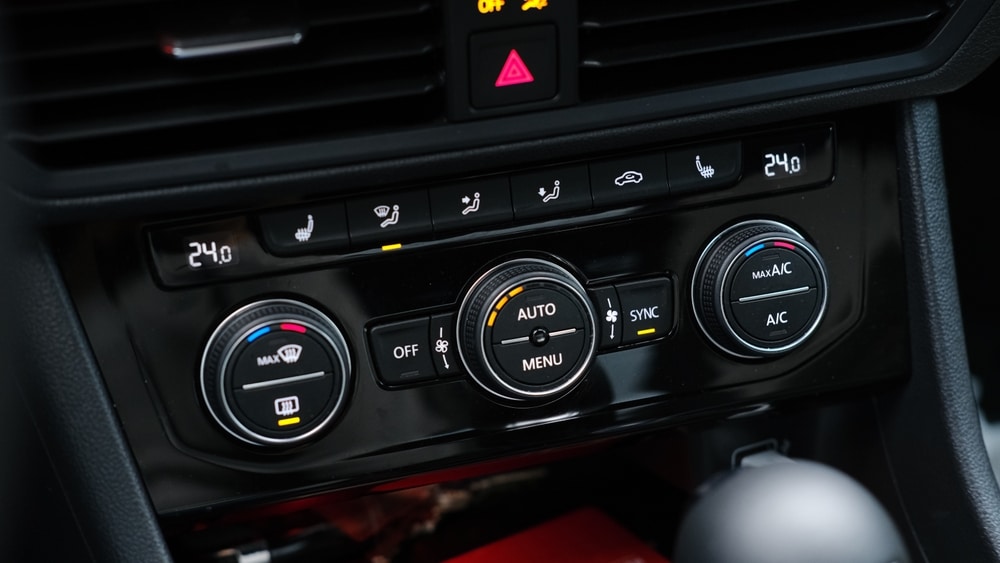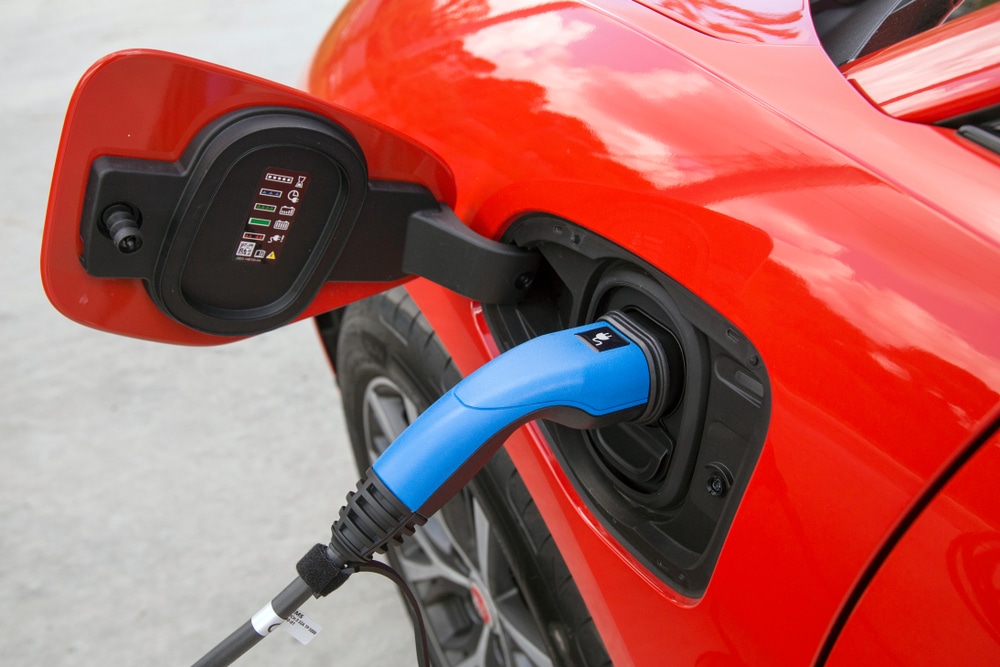Anti-Lock Brakes
You’re driving down the M4 heading for Caerphilly when the car ahead brakes hard. You hit the brake pedal, but instead of quickly and safely stopping, your wheels lock, the car skids, and you can’t steer. As the tyres screech and your car veers off course, one thought runs through your head: “I should have got that ABS warning light checked out.” It had been on for a while. You’d meant to book it in. Now you’ve collided with another vehicle, and the damage isn’t just to your car.

Your vehicle’s anti-lock braking system (ABS) plays a crucial role in keeping you in control during emergency situations. But it doesn’t just help you stop; it also helps you steer while stopping. When it’s not working, the difference can be that crucial few feet that help you avoid a collision.
At Ystrad Service Centre in Ystrad Mynach, we’ve helped many local drivers with ABS issues. We know what can go wrong, and more importantly, we know how to put it right. If your ABS light is on, don’t wait. It’s a highly complex system that needs the attention of our expert technicians.
In this blog, we’ll explain exactly what anti-lock brakes do, how they work, and when it’s time to book in.
Let’s get straight into it.
What Is The Anti-Lock Braking System (ABS)?
The Anti-Lock Braking System (ABS) is designed to stop your wheels from locking up during heavy braking, especially in emergency situations. It’s not about helping your car stop faster in all conditions, but about helping you stay in control while it stops.
Without ABS, slamming on the brakes could cause one or more wheels to lock, sending the car into a skid. When you skid, your tyres have lost adhesion. Once adhesion has gone, you’ve lost the ability to brake or steer properly. This is a major problem if you’re trying to avoid another vehicle or obstacle. ABS solves this by rapidly adjusting brake pressure to each wheel multiple times per second, preventing full lock-up and keeping the tyres rotating just enough to maintain grip.
It’s a safety-critical system that gives the driver the best chance of staying in control when it matters most.
How Do Anti-Lock Brakes Work?
Modern anti-lock brakes are constantly on standby, ready to intervene the moment they detect danger. Usually, during everyday driving, ABS stays inactive until it’s needed. If the system senses that a wheel is about to lock during braking, it steps in.
Each wheel is fitted with a sensor that feeds real-time rotational speed data to the ABS control unit. If it detects that one wheel is decelerating faster than the others, a sign that it’s close to locking, the system responds. It rapidly adjusts brake pressure at that wheel using a system of electronically controlled valves in the ABS Modulator, briefly reducing it just enough to keep the wheel rotating. As soon as grip returns, it reapplies pressure. This cycle repeats multiple times per second, far faster than any human could react.
You might feel a pulsing sensation through the brake pedal when this happens. That is completely normal. It means the anti-lock braking system is doing its job: preventing a skid, helping the tyres maintain grip, and giving you a fighting chance to steer around hazards.
A single faulty ABS sensor, reluctor, modulator, valve, wiring harness or software fault can stop this process from working, and will cause your warning light to come on. At that point, it’s time to give Ystrad Service Centre in Ystrad Mynach a call on 01443 540460.
Where Is the ABS System Located in the Vehicle?
The anti-lock braking system is made up of several key components, all working together to help prevent your wheels from locking up. This is where the main parts are found on most modern vehicles:
- Wheel speed sensors – Located at each wheel, usually near the brake discs or hubs. These sensors monitor how fast each wheel is rotating and send data to the control unit.
- ABS control unit (ECU) – Typically mounted in the engine bay and connected to the modulator, this electronic module constantly reads the speed data and makes real-time decisions to adjust brake pressure if needed.
- Hydraulic modulator or ABS pump – Also found in the engine compartment, this unit controls the brake fluid pressure during ABS operation. It uses valves and a pump to hold, reduce and restore pressure to the brakes in rapid cycles.
- Brake lines and valves – Built into the ABS hydraulic modulator, solenoid valves work in sync with the brake lines to regulate pressure at each wheel. During hard braking, the valves open and close in fast cycles to either hold, reduce, or increase fluid pressure, preventing wheel lock and helping maintain control. This all happens within fractions of a second, many times per second.

At Ystrad Service Centre in Ystrad Mynach, our technicians are trained to understand each part of your anti-lock braking system. If your warning light is on or something feels off when you brake, call us on 01443 540460. For a better understanding of how your brakes work as a whole, check out our related blogs on Brake Pads, Brake Discs, and The Braking System Explained.
What Other Stability Systems Work With ABS?
ABS is just the starting point. On most modern vehicles, it’s part of a wider safety network designed to keep your car stable under pressure. These systems all communicate through the same control unit and rely on the ABS sensors to function correctly.
Here’s what each one does:
- Electronic Brakeforce Distribution (EBD) – Automatically shifts braking force between front and rear wheels to reduce the risk of skidding during sudden stops or heavy loads.
- Traction Control (TCS) – Helps prevent wheelspin during acceleration by applying brake pressure to spinning wheels and adjusting engine output.
- Electronic Stability Programme (ESP) – Detects when the vehicle starts to slide or veer off course and applies brake force to individual wheels to help keep it stable.
These features all depend on the ABS system to deliver accurate, real-time data. If it isn’t working properly, each stability system can become compromised.
These systems are highly complex and should always be looked after by qualified experts. If you’re looking for a team around the Caerphilly area that can help, give Ystrad Service Centre a call.
What Affects the Performance of ABS?
Anti-lock brakes are designed to keep you in control during challenging braking situations. However, ABS can only work properly if the conditions allow it to. When something interferes with the way it senses wheel speed or manages brake pressure, that safety net can disappear.
Poor road conditions are one major factor. On surfaces like ice, snow or loose gravel, ABS can struggle to find grip. While ABS still helps you steer, it’s no substitute for safe driving in difficult conditions.
Component faults are another concern. If a single ABS sensor starts feeding back inconsistent data or the hydraulic modulator cannot respond quickly enough, the system may fail to engage or operate incorrectly. That is often when the ABS light comes on.
When anti-lock brakes do not respond as they should, the consequences can escalate quickly, especially in the seconds that matter most. That’s why, at Ystrad Service Centre in Ystrad Mynach, we take every warning light seriously and carry out a thorough technical evaluation, leaving nothing to guesswork.
Warning Signs Your ABS Has Failed
When the anti-lock braking system is not working properly, your brakes may still feel normal, until suddenly you realise the system is not there when you need it most.
Here are the key warning signs to look out for:
- The ABS warning light stays on
If the ABS light comes on for a few seconds when you start the engine, that is normal – it is part of the system’s self-check. But if the light stays on while you are driving, a fault has been detected and may have stopped working or may no longer be available. You will still have standard braking, but potentially without the safety net of ABS support. Call us on 01443 540460 – your ABS needs urgent attention. - No ABS activity during hard braking
If you brake hard and the wheels lock without any pulsing or control intervention, the ABS system may not be functioning. - Multiple warning lights
A faulty ABS sensor or module can sometimes trigger other brake-related warnings. You may notice that the brake warning light has appeared alongside the ABS light. Neither hazard light should ever be ignored.
If you notice any of these symptoms, give Ystrad Service Centre in Ystrad Mynach a call on 01443 540460. We can inspect your anti-lock braking system and pinpoint the fault before it compromises your safety.
Why You Should Not Ignore ABS or Brake Warnings
It is tempting to overlook warning lights, especially if everything feels fine. But with safety systems like ABS, that decision could cost you.
The ABS warning light means the system has detected a fault. While your brakes may still work normally, the anti-lock function will not. That means no pressure modulation, no emergency steering support, and no backup if a wheel locks during sudden braking. You might not notice the difference in day-to-day driving until you are forced to stop fast on a wet or slippery road. And by then, it may be too late.
The ABS warning light may be triggered by many of the components that make up the anti-lock braking system. Once it is on, the system can disable itself for safety. That means no anti-lock protection until it has been checked and reset.
There is also the legal side to consider. A persistent ABS light is enough to fail an MOT. If the brake warning light is also on, that is a second safety-critical fault.
At Ystrad Service Centre, we have seen how quickly a minor fault can turn into a major one. If your dashboard is telling you something is wrong, do not ignore it. Call us. Book in for a check before it becomes an emergency.
Book with Ystrad Service Centre
ABS is one of the most important safety systems on your vehicle. When it’s working properly, you might not even know it’s there. But your Anti-lock braking system could make all the difference in a hard braking situation.
At Ystrad Service Centre, we specialise in identifying and repairing ABS faults quickly and professionally. We have the equipment, experience, and technical know-how to work on today’s advanced braking and stability systems. In fact, we’re considered specialists in this field.
With Ystrad Service Centre, you get:
- Dealer-level expertise without the dealership price
- Highly trained and experienced technicians
- Straight-talking advice you can trust
- 12-month parts and labour guarantee
Give us a call on 01443 540460 to book a brake system check, or ask about your ABS warning light. We are here to keep you in control, wherever the road takes you.



